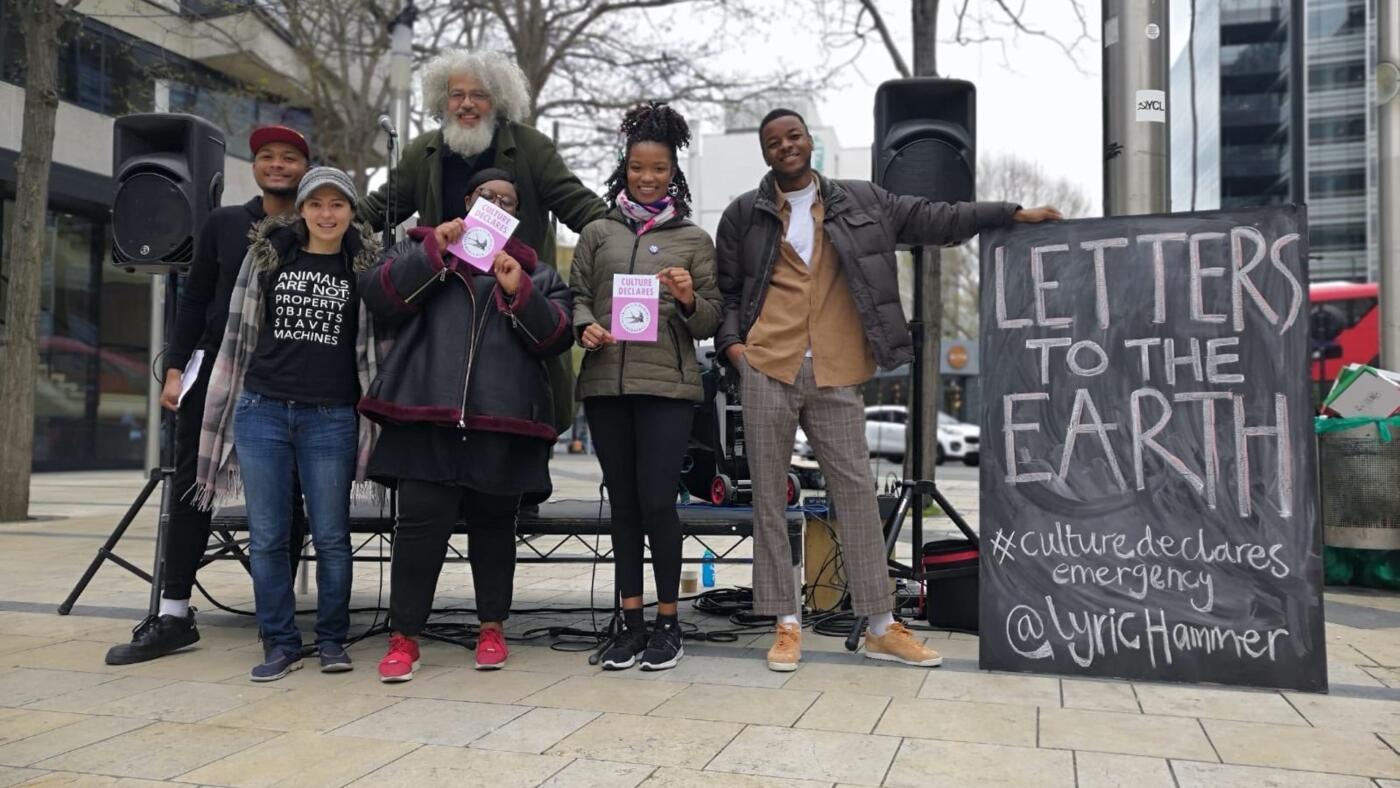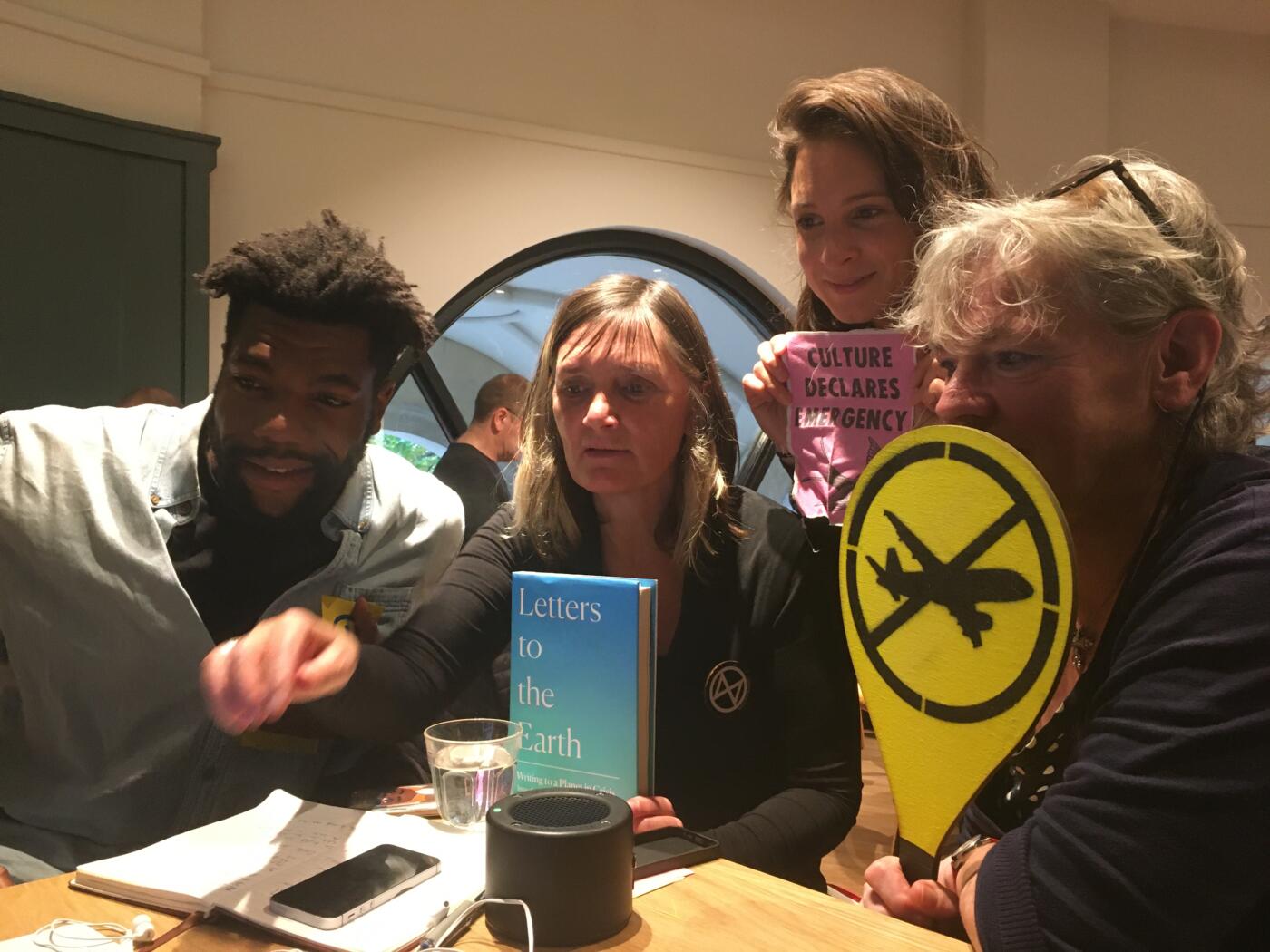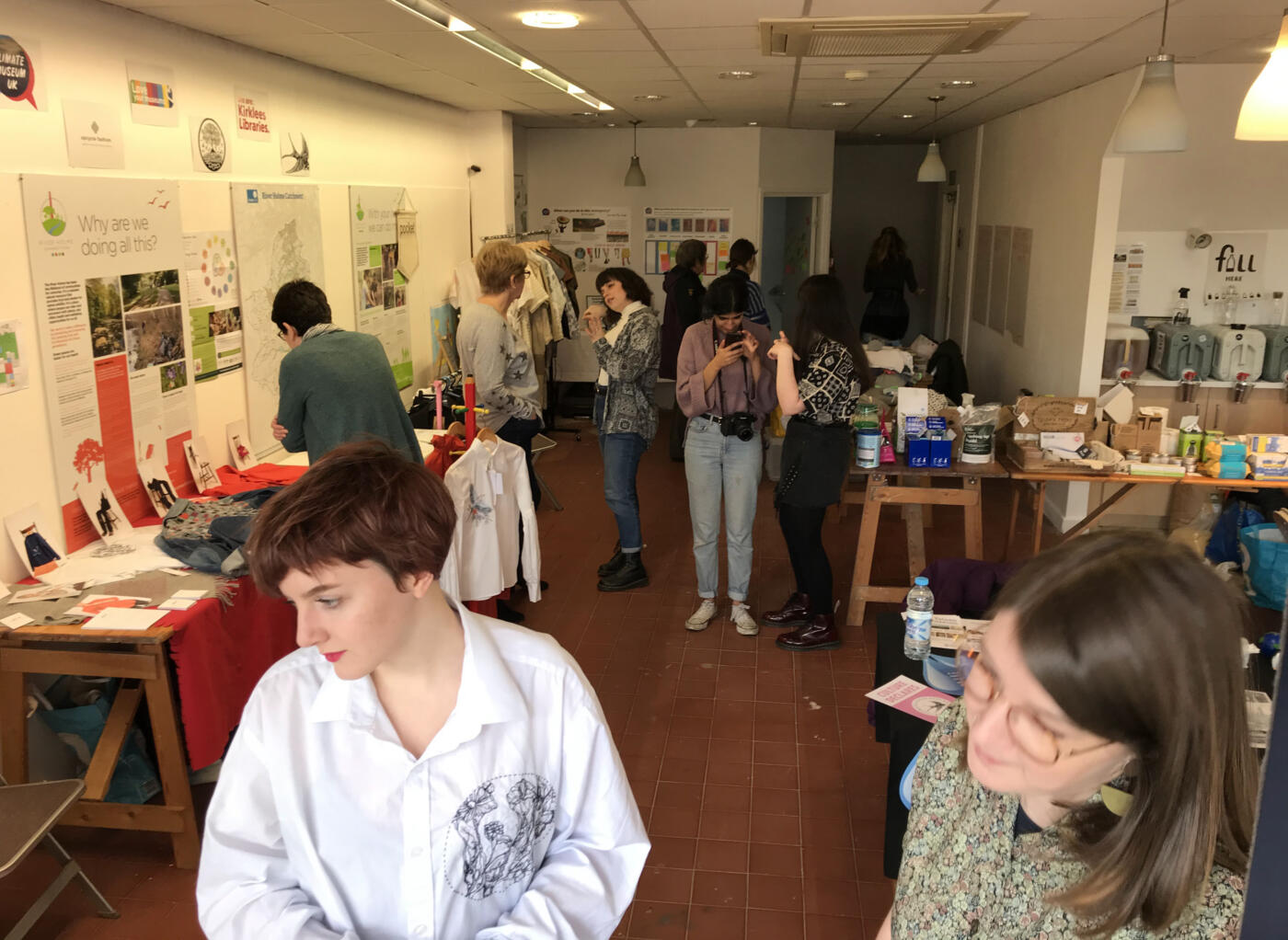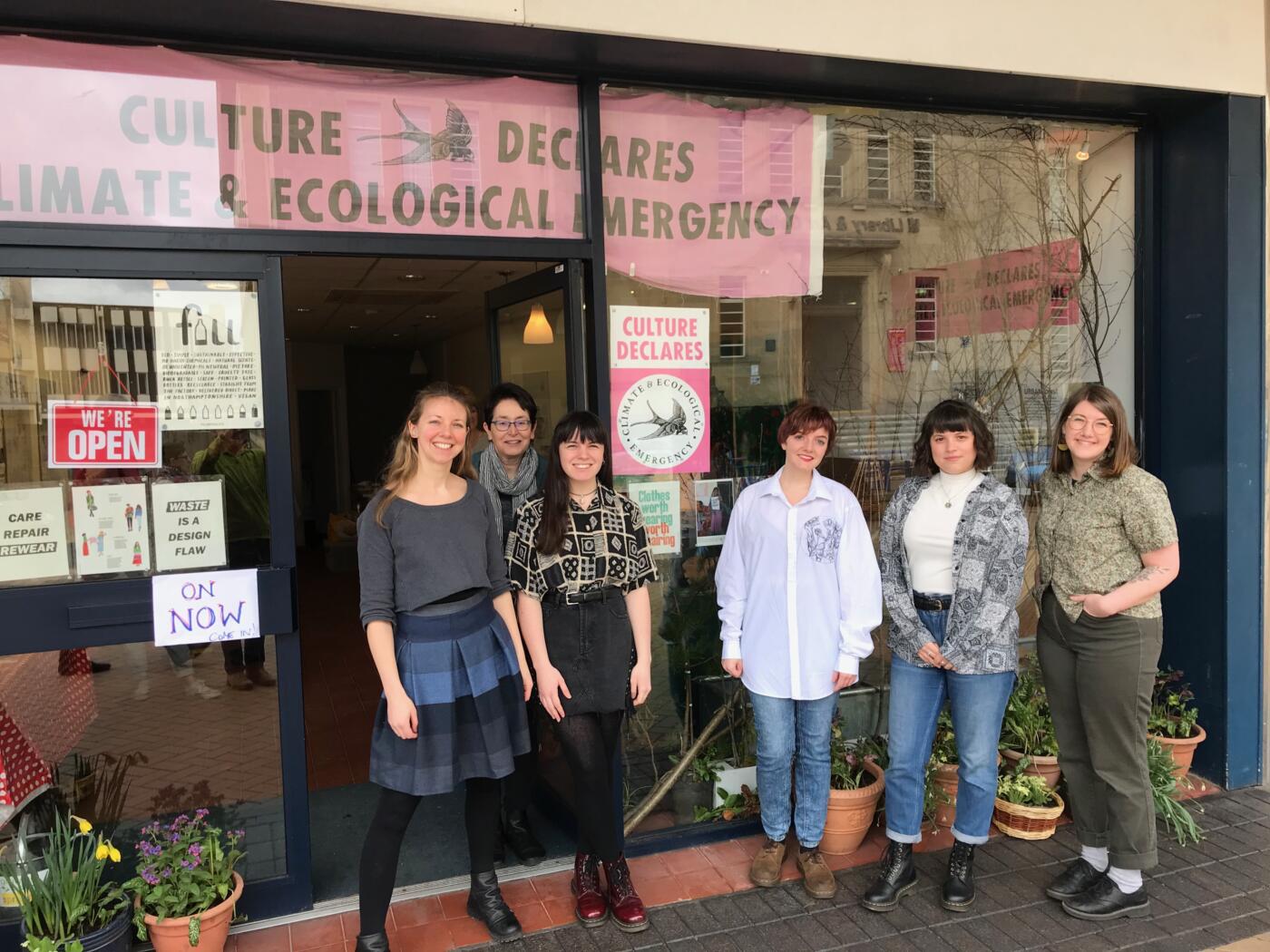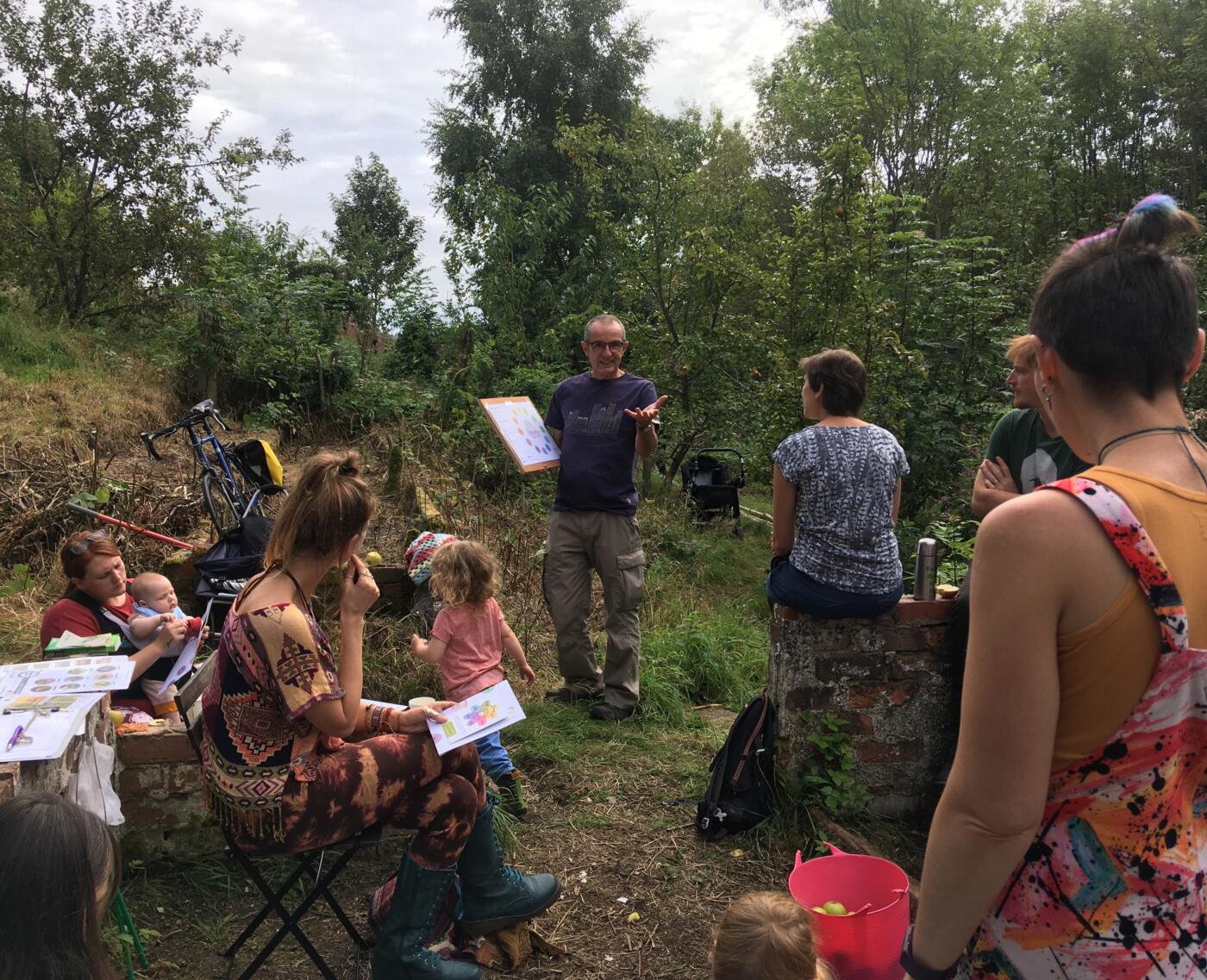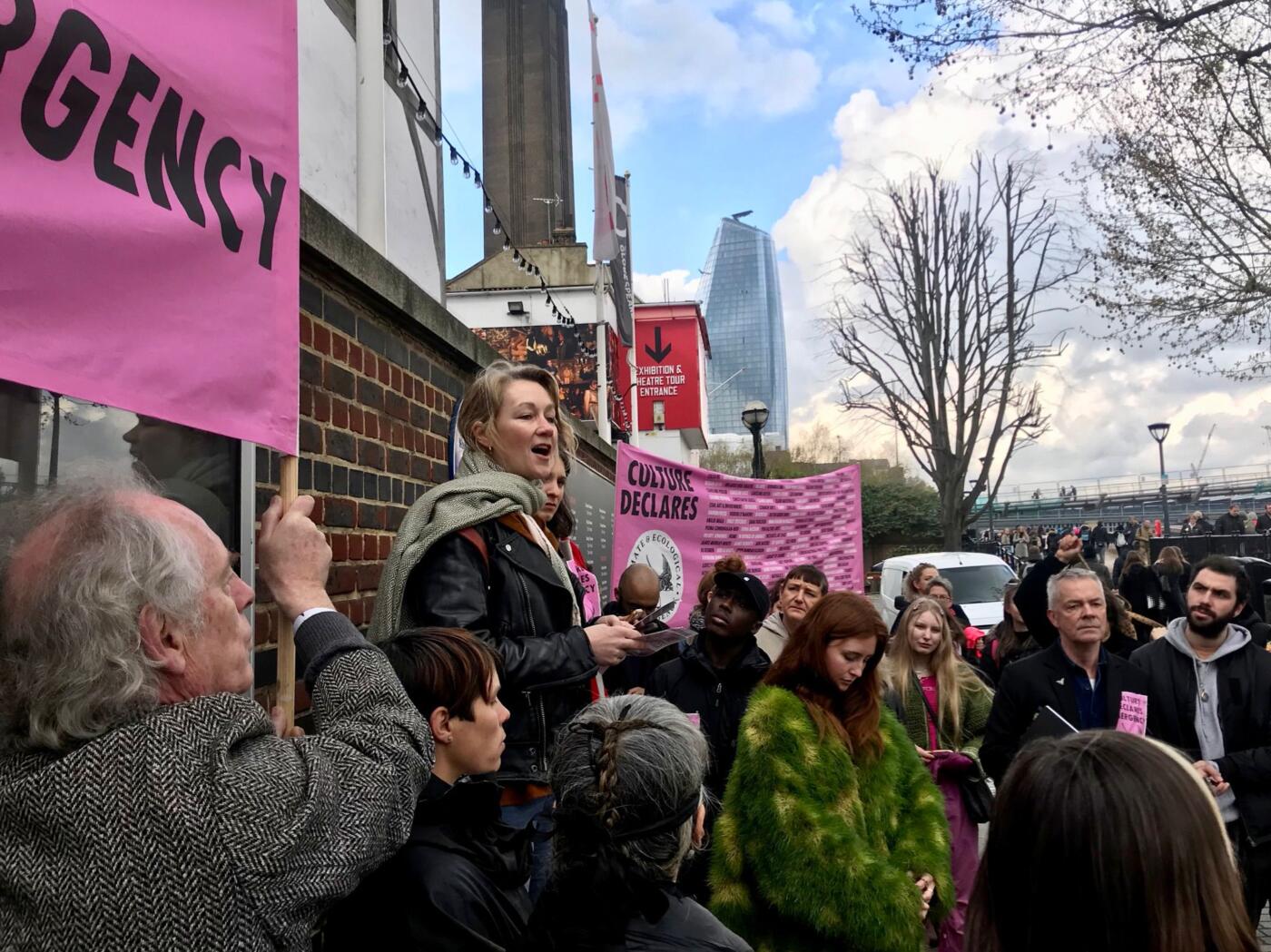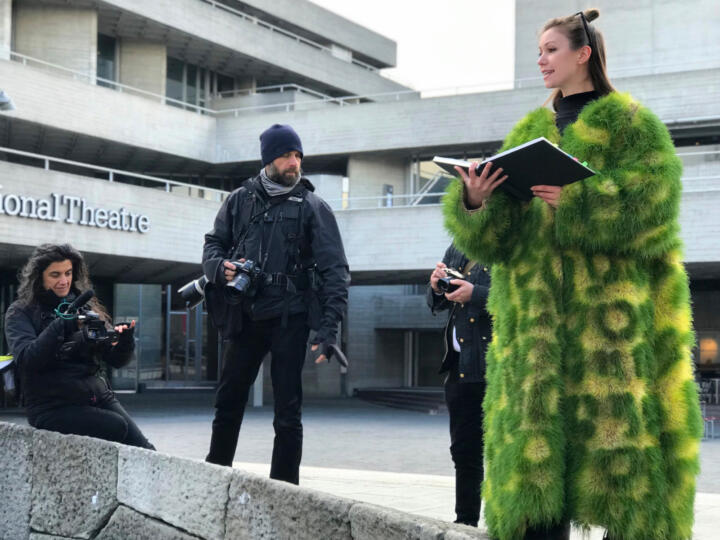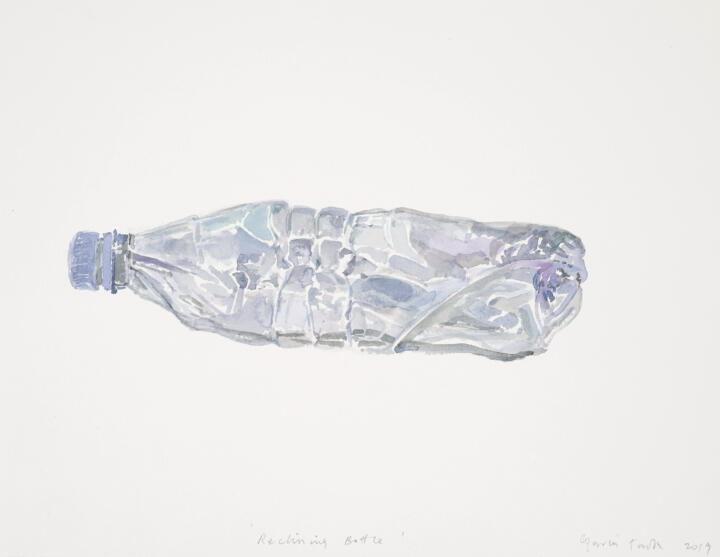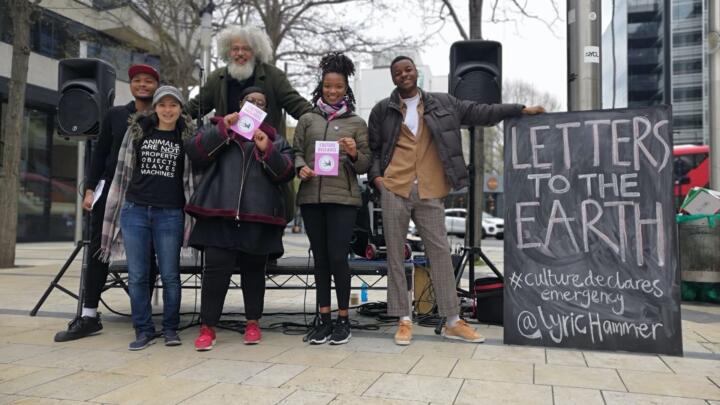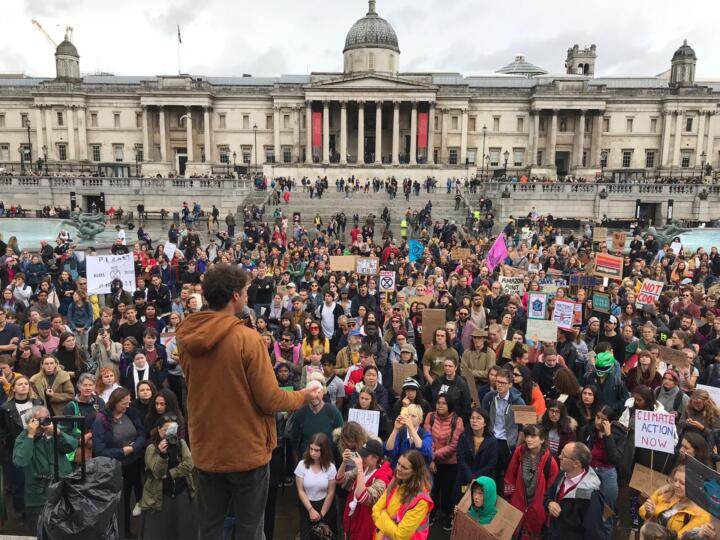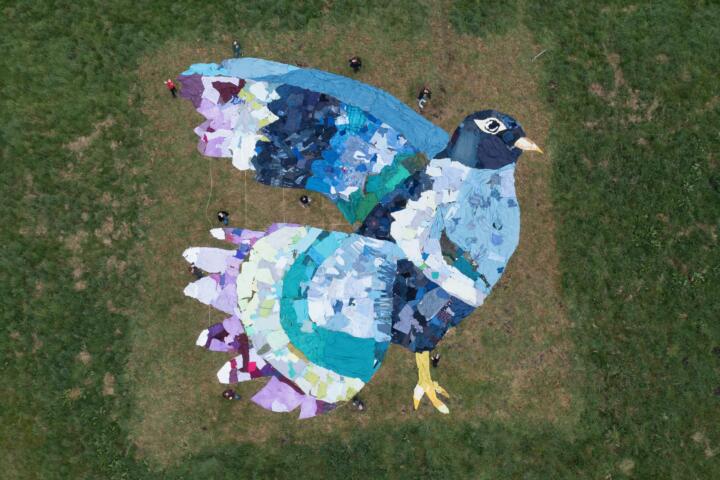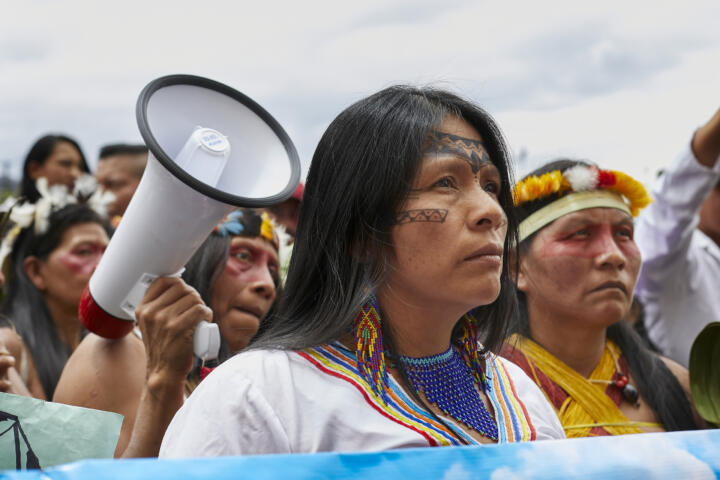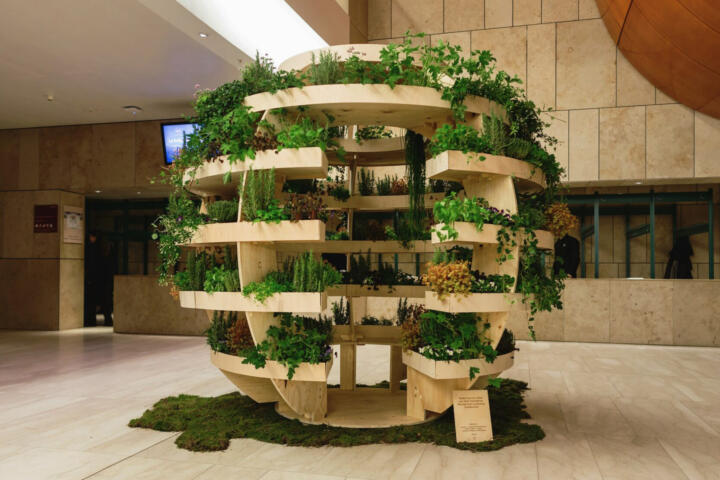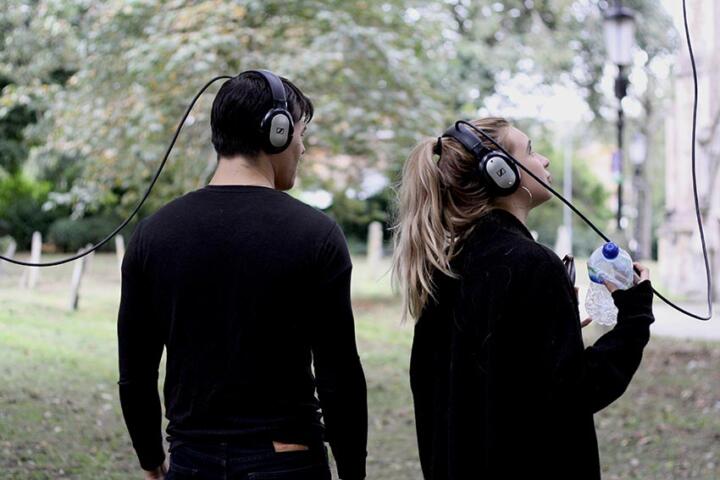#3 Transition: resilient localised economies
Your declaration might focus on how you can be an agent for change in your community, helping people and places become healthy, sustainable and resilient.
Explore the role of culture to make change
- Culture can play an active role in the transition to greener and more local economies, helping people gain a ‘sense of place’ and feel able to imagine possible futures. Try out some small experiments. Invite eco-social arts practitioners to share their practice in these areas.
- Connect your normal practice with other kinds of culture: Outdoor arts, intangible heritage, citizen science and social media projects can raise appreciation and stewardship of biodiversity, green space & infrastructure for resilience to extreme weather.
Focus on the needs of people in a place
- How can you promote and support local self-sufficiency, acknowledging the basic importance of food, water, energy and shelter in people’s education and activism?
- Can you support regenerative forms of place-making, giving a new meaning to the ‘regeneration’ of localities, one that is not about enabling investors and developers to gain wealth?
How political can you be?
- Get involved in your local council’s work on climate action. Ask them to declare emergency, and if they have, support their emergency response.
- Announce your aim to provide cultural services as an alternative to consumerism, while also considering how you might support people in poverty who are unable to enjoy a materialistic lifestyle.
Hold space for public discussion
- Perhaps bring together different groups such as farmers and teachers, or campaigners and high street shop owners? Plan it so that there is a follow-up action, to implement a practical response.
- Find out about participatory democracy and organise ways for local citizens to be more involved in decision-making – whether about new developments, housing, equalities, refugee support policies, health, education, culture, green spaces or transport. All these areas can involve decisions that are more planet-friendly, or resilient to climate impacts.
Kickstart after your declaration
- Host an event (or a display, or surgery session etc.) to explore the emergency and what this means in practice.
- Plan this so that there is a follow-up action, to implement a practical response.
- You could run it as an arts-based workshop to better enable expression of feelings or imagination of solutions.
- Create supportive frameworks where people can come together to listen to speak openly and share their fears, concerns and grief about the emergency.
- Work with your audience to get ideas to respond to the emergency in your organisation. Start with your declaration plans and invite ideas on how to enact them.
